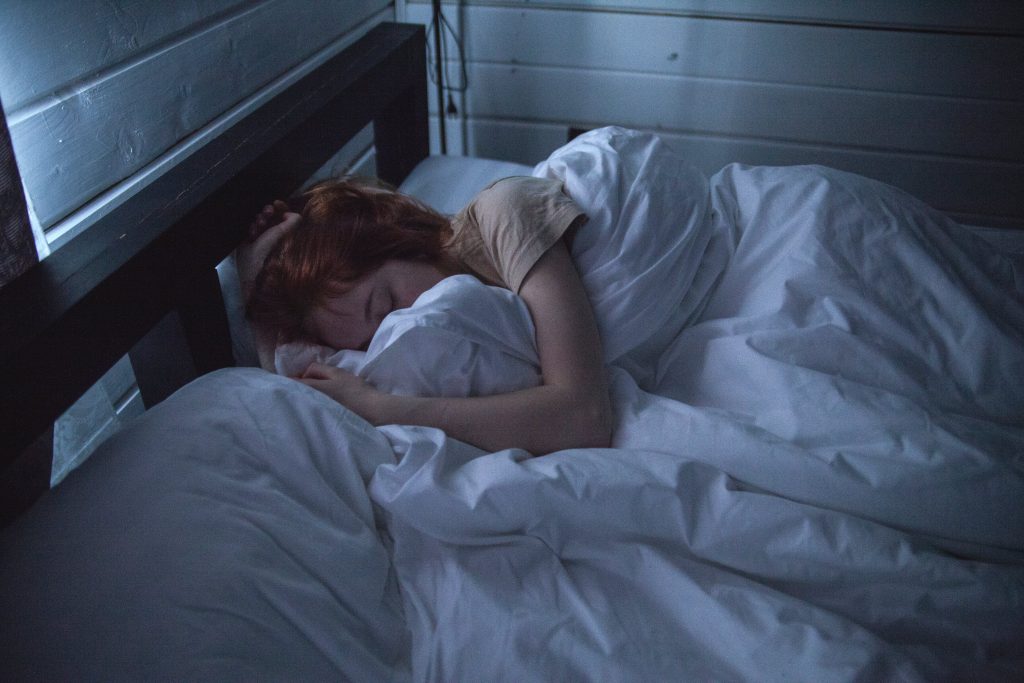Why is sleep important
Why is sleep important
We all must sleep. Whether you are young or old, man or woman, tall or short. Every single one of us needs some shut eye every now and again. But have you ever wondered why is sleep important? I know I have, and it’s that question which I am trying to answer in this blog post.
A good night’s sleep will help maintain your physical and mental health. Sleeping helps the brain process the day’s events and is important in the formation of long-term memories. If a person does not often get enough sleep, then this can raise the risk of certain disorders like obesity, strokes, heart disease and dementia.
How does sleeping affect physical health?
According to Dr Michael Twery, who is a sleep expert at News In Health, “Sleep affects almost every tissue in our bodies. It affects growth and stress hormones, our immune system, appetite, breathing, blood pressure and cardiovascular health”
Research has shown that not getting enough sleep can lead to increased risk of heart disease, obesity and infections. Being deprived of sleep for extended periods of time often leads to becoming exhausted more quickly and having decreased stamina for physical tasks. Lack of focus means that tired people aren’t as effective at performing tasks as those who are well rested.
Equally, someone who enjoys good quality sleep regularly will not only get sick less often but will be able to concentrate better and think more clearly. They will perform better at work or school. They will also be less likely to injure themselves in accidents.

Waking up from a good night’s sleep leaves you feeling refreshed and alert in the morning. This is due in part to the body’s natural maintenance processes which run while we are sleeping. Spending enough time sleeping is also important to feeling refreshed in the morning.
Sleeping is a very important factor in the development of young minds and bodies. The younger a child is the more sleep they need. Again, studies have proven that sleeping affects attention and alertness, mood, concentration, memory, and learning. Sleep also allows the body to grow, especially in infants. Napping in toddlers is necessary for consolidating memories and motor skill development.
How does sleeping affect mental health?
As with physical health, your mental health is also dependent on regular, good quality sleep.
Sleeping poorly can make it much harder to deal with things when stuff goes wrong. Even relatively minor setbacks seem much bigger when you are tired. These can lead to increased feelings of anxiety and depression. This can be a vicious circle as anxiety is one of those things which keeps you awake at night, which in turn decreases the chances of you getting a good night’s sleep.
Being tired also is associated with negative moods such as anger, frustration, irritability, and sadness. Such emotions often appear as sudden outbursts.
For many years it was thought that sleeping problems were a symptom of mental health issues, more and more research is suggesting that sleeping and mental health are more interconnected than previously thought.
Sleep deprivation is connected to developing temporary psychotic symptoms. One study found that some people who went without sleeping for as little as 24 hours experienced hallucinations. Others who were deprived of sleep for 60 hours not only hallucinated, but also became delusional.
Not sleeping can also affect your behaviour. People who are tired can be impulsive, hyperactive, and prone to emotional outbursts. Things like shouting at a colleague for making a mistake at work or leaving the room because someone has said something you didn’t like. Judgement skills and decision making are affected also.
How much sleep do we need.
The amount of sleep we need varies depending on our age. The quality of sleep is important as well. Things like bright lights or loud noises which disturb, or interrupt our slumber have an affect on the quality, and in turn, how restful it can be.

The average adult needs between 7 to 9 hours of good quality sleep per night. Some people need more, others need less.
Teens need around 8 to 10 hours of sleep per night. It’s been observed that teens tend to mimic their parents’ sleeping habits, so it’s important for your children that you develop good sleeping habits sooner rather than later.
Children aged 6 to 12 need 9 to 12 hours of sleep every night.
Children between 3 to 5 years old need between 10 to 13 hours of sleep each day, including naps.
1 to 2 years olds need 11 to 14 hours of sleep each day, including naps. Things like teething can have an adverse effect on sleeping in toddlers.
Infants sleep between 12 and 16 hours a day, with newborns reaching up to 17 hours.
If you hadn’t slept well the previous day or two, then you may find you need more sleep to catch up. Things like illness and pregnancy can also have an affect on how much sleep you need.
How can I sleep better at night.
Sleep is a complex subject, with several factors, both health and environment related, which can affect it.
Here are some tips to help you sleep more restfully.
Routine helps. We are creatures of habit, and our bodies love nothing more than going to bed at the same time every day. Make sure you leave time to get enough sleep, including time to drift off.
You should avoid eating anything an hour before bed, and not sleep for two to three hours after a meal. Your body doesn’t digest food well when it’s sleeping as it’s focusses are elsewhere. This can lead to digestive issues like reflux and heartburn, which interrupt sleeping.
Caffeine should be avoided close to bedtime. It’s best to not drink anything with caffeine after your last meal of the day. Caffeine is a stimulant.
It’s been found to be beneficial to a good night’s sleep if you don’t use tablets and phones for an hour before bed. They do not help with a relaxing end to the day. Regardless if it’s games or social media, they keep the brain in a heightened state of alertness.
Equally, your bedroom should be quiet, cool, and dark. Ensure there is no harsh lighting glaring down which could keep you awake or prevent you from entering deep sleep. Some people, however, find complete darkness to be frightening, and impossible to fall asleep in. In this case, it’s best to leave a dim light on at least until they fall asleep. We covered fear of the dark in a previous blog >here<.
Sometimes unexpected noises, like from old pipework can keep you awake; or if you are trying to sleep in an unfamiliar room which sounds different, a white noise generator can be beneficial. These are devices which can play either a selection of natural soothing sounds, or just random white noise. They help to both provide a relaxing sound to help you fall asleep to, and they can mask intrusive sounds which would otherwise keep you awake.
Loomy Night Light – A free night light and white noise generator!
If you’ll excuse the shameless plug, Loomy Night Light is both a night light app and a white noise generator. Best of all its free for Android, iPhone, and Amazon devices. Click the link to the right to learn more about our little app.
Conclusion
So, there we go. Sleeping is important to both our physical and mental health. Getting the right amount of good quality sleep ensures that our bodies remain in tip top condition and helps to fend off dozens of conditions which we may otherwise be susceptible to.
In many cases, common mental health problems like anxiety and depression, are helped when a better sleep routine is established.
Sleeping also helps our brains perform better overall. A well-rested person is more focused and able to concentrate better. They are also less likely to engage in displays of negative emotion.
The amount of sleep required varies from person to person, and depends on factors like age, health, lifestyle etc.
